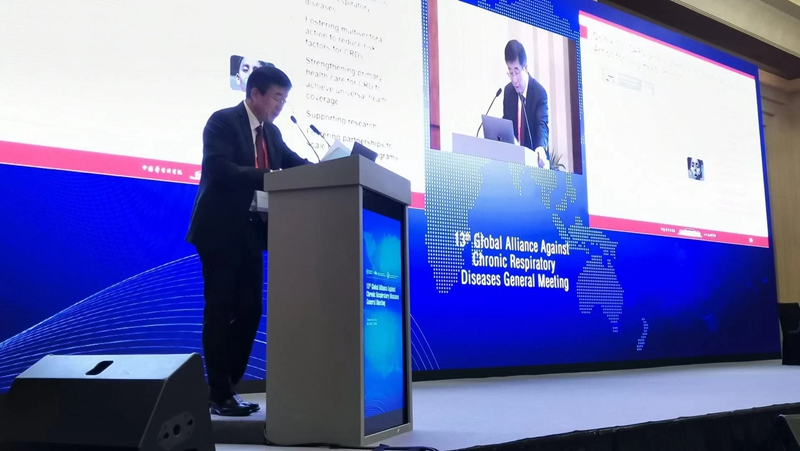02:19

To raise public awareness of chronic respiratory diseases (CRDs), a global public health threat that damages airways and lungs and causes breathing problems, health experts worldwide issued a declaration in Beijing on Saturday. It calls on nations, healthcare professionals and relevant parties to scale up the prevention, diagnosis, management, monitoring and research on chronic respiratory diseases, and to promote lung health.
The declaration was made at a meeting by Global Alliance against Respiratory Diseases (GARD), a partnership organized by the World Health Organization (WHO). During the meeting, global health experts highlighted the severe situation regarding CRD control.
According to WHO, CRD is the third chronic killer, and its conditions include Chronic Obstructive Pulmonary Disease (COPD) and asthma. Statistics show that COPD causes over 3 million annual deaths, and 235 million people worldwide suffer from asthma, causing 400,000 deaths each year. In China, the prevalence rate is pretty high, with nearly 1 out of 14 living with CRDs.

"In China, because of high smoking rate, indoor and outdoor air pollution, and the aging society, the situation will get more and more severe. We have to do something very rapidly," said Wang Chen, President of the Chinese Academy of Medical Sciences.
However, public awareness of CRD is relatively low, as most people don't consider it a major problem and even ignore the symptoms. Wang says more efforts are needed for health education. Furthermore, health experts advocate for stricter regulations on tobacco and vaping, and more actions to address air pollution. Governments are encouraged to include CRD services in universal health coverage, and researchers worldwide will also standardize indicators to better monitor the disease.
China has begun to take measures. The health authority issued "Healthy China Action Plan (2019-2030)" this July, with eight of the 15 specialized action plans related to respiratory health.
"China, with its population, if it makes a difference, it will have a global impact," commented Cherian Varghese, director of WHO's department of Noncommunicable Diseases.